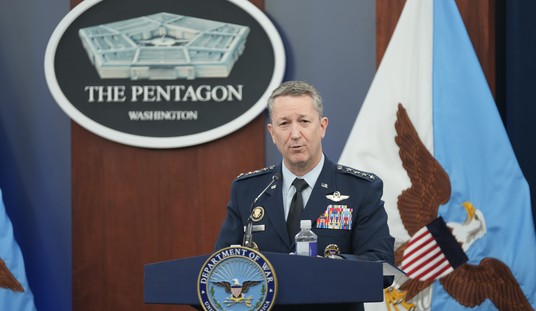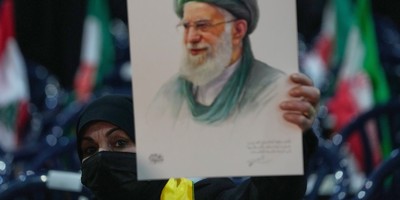On April 5, The New York Times published an op-ed by retired Army Gen. Stanley McChrystal headlined "Save PBS. It Makes Us Safer." McChrystal now runs a big lobbying firm, so that may be why he cares so much -- he's a gun for hire.
So how does the general think PBS makes us safer? And from what are we safer? The answer: commercialism. Parents like his son and daughter-in-law "are busy in the morning and busy at night," he says. "They want to protect their children from over-commercialized content."
This argument is bizarre -- actually, let's call it what it is: disingenuous -- at a time when "Sesame Street," which was used to illustrate this article online, of course, is now an HBO property.
"Sesame Street" is the embodiment of the need for public funding? This is nonsense. Big Bird generates a fortune in the private sector. When you search "Sesame Street" under "all departments" on the Amazon website, it produces 39,276 results.
McChrystal concluded that the people defunding PBS are waging a war on civil society, asking, "Why then would we degrade or destroy an institution that binds us together?"
Some lobbyists will say anything. We hope he's well-compensated for writing those words. He's also featured in a video made by the lobbying group America's Public Television Stations claiming that public media "gets to the center" and is the "adult in the room" of the news business.
So what is it that binds us together anyway? Justin Haskins reports at TheBlaze that the PBS LearningMedia website has a lesson plan for grades nine through 12 titled "Dying to be a Martyr." The lesson "investigates conflict in the Middle East using interviews with young would-be suicide bombers." Video interviews shown in the class were done in 2004.
Recommended
First, there's 18-year-old Mohanned Abu Tayyoun, a Palestinian "who entered Israel carrying a bag of explosives with the intention of carrying out a suicide bombing." But he wavered and "returned home without carrying out the mission."
Tayyoun is interviewed from a jail cell in Israel about why he wanted to be a suicide bomber. He said: "Martyrdom leads us to God. I don't want this life. When you become a martyr, your prize for carrying out the operation is going to heaven. ... We Palestinians prefer to die, just kill ourselves, rather than live this worthless life. Our life's worthless. We are hollow bodies living a pointless life. Israelis enjoy their life. They go out at night. They have cafes and nightclubs. They travel all over the world. They go to America and Britain. We can't even leave Palestine."
Teachers are told: "Check for understanding by asking students to respond to the focus question. (Mohanned feels he would rather die and by a martyr than live his life, sees his life as hollow -- in contrast he sees Israelis as happy, going out, having fun, traveling.) Ask your students why Mohanned may feel that way."
In other words, feel his pain. We'd rather ask why PBS feels it can abuse the American taxpayer this way.
There's more. Students watch 25-year-old Majdi Amer, who built a bomb and prepared a suicide bomber for a bus attack in Haifa, Israel, "that killed 17 people and wounded 50" in March 2003.
Amer is asked why he believes it's acceptable to kill women and children. He says: "If the Israelis kill a child in Gaza, I'm ready to kill one in Tel Aviv. If they destroy houses in Gaza, I'll do it in Tel Aviv. If they give me security in my land, then there's no problem."
Teachers are then tasked to explore "how Majdi and Mohanned's opinions differ from one another, even though they are both Palestinians involved in suicide bombing plots." The lesson planners at PBS have no instructions to denounce suicide bombing or radical Islam. None.
The website lists JPMorgan Chase and the Corporation for Public Broadcasting as the funders. That means you are paying for this.
Dear General McChrystal: PBS isn't "making us safer" by promoting suicide bombers like the ones that killed your soldiers in Afghanistan.
























Join the conversation as a VIP Member